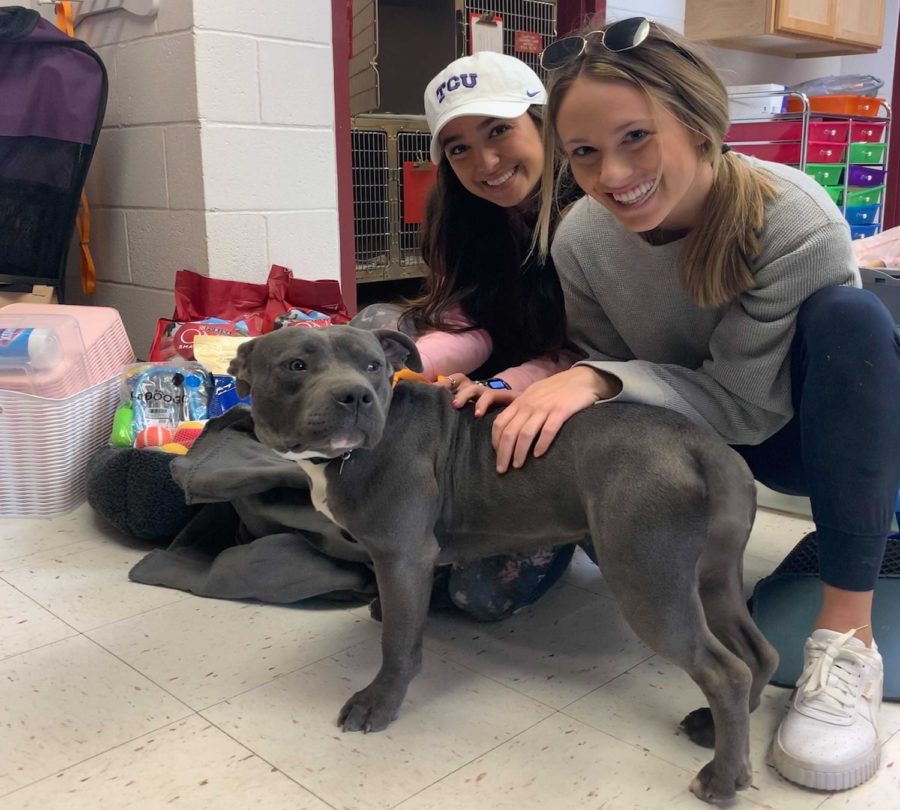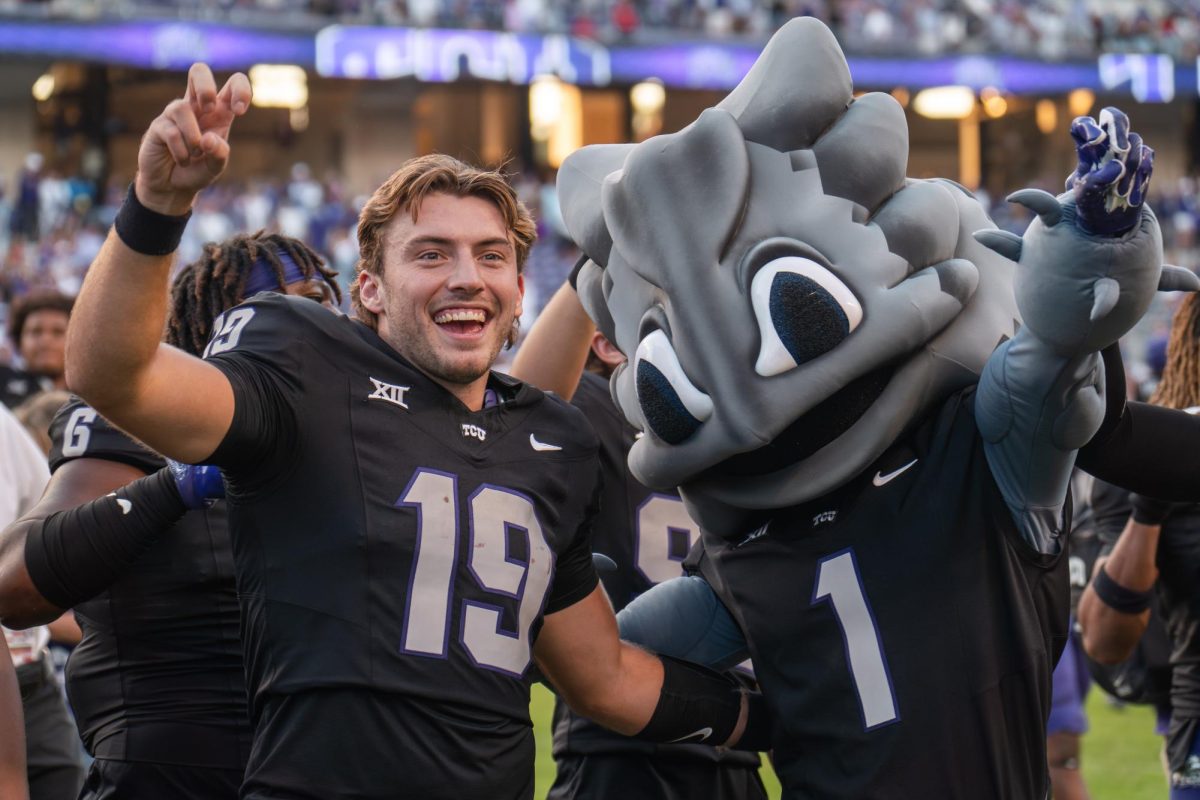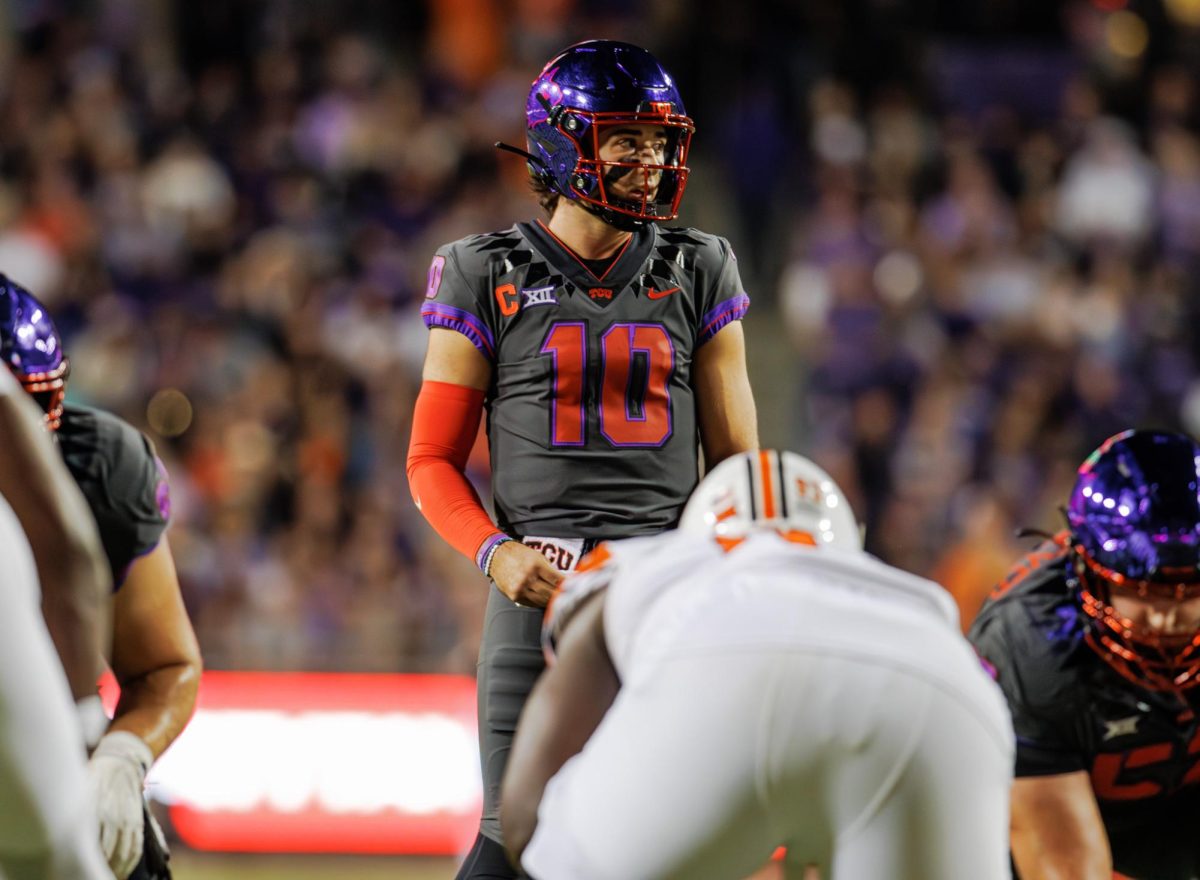Shelter animals in Euless, Texas, are getting an assist in finding forever homes from two junior business majors.
The women, who dedicate much of their time outside of the classroom to working with a local animal shelter, said their experiences have filled a missing piece in their lives.
Over the past year, Marie Langer and Brittany Taylor have made many round trips about 40 miles each to the Euless Animal Shelter where they work with the Trinity Girls Awareness Program, also known as GAP.
Upon arriving at the shelter, the girls are tasked with taking photos of the new animals to help them find a foster home and, eventually, a forever home.
Langer says the shelter is like a prison. “Our goal is to get as many animals out of the dark place as possible.”
“Some of them come in terrified, aggressive and even physically broken,” Langer said. “Once they have a sense of stability, they turn into angels.”
Langer and Taylor met working together in a group project in the Neeley School of Business where they found a shared passion for animals.
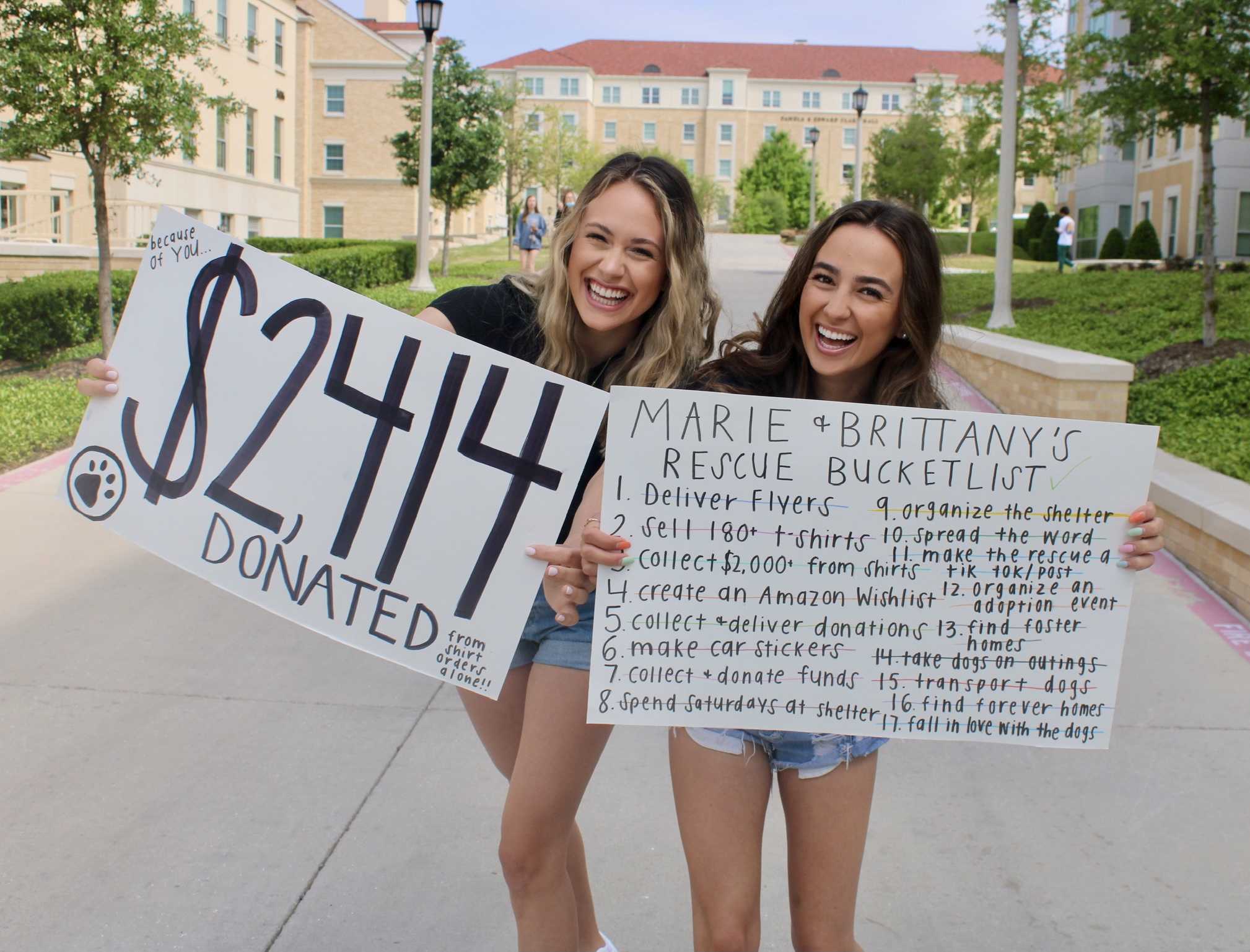
Taylor’s professor recognized her love for animals and connected her with the local rescue, GAP. Taylor passed the information along to Langer, and just days later they found themselves involved in the organization.
Founded by Steffenie Vela in 2003, the nonprofit raises money to support the shelter. Langer and Taylor have raised more than $2,414 for the rescue through T-shirt sales.
Vela created GAP with hopes of giving girls at Trinity High School an opportunity to be involved in community service.
The program holds fundraisers such as bake sales, T-shirt sales and tamale sales to sponsor the Euless city-run shelter. When an animal comes into the shelter, GAP steps in to help address its needs.
GAP has reduced euthanasias at the Euless shelter by 80%, said Taylor. The Euless shelter has not put down an animal in 10 years due to capacity issues.
Langer says as a college student, there are various ways to get involved with the Trinity GAP Rescue.
Fostering is the most impactful action a student can take to help the rescue, Langer said. “Capacity issues are why animals are put down. People opening up their homes until an adoption takes place literally saves their lives,” she said.
Twelve students have fostered animals since the program was introduced to campus.
After a family death and isolation during the pandemic, senior marketing major Gemma Welk said “fostering Parker was exactly what I needed.”
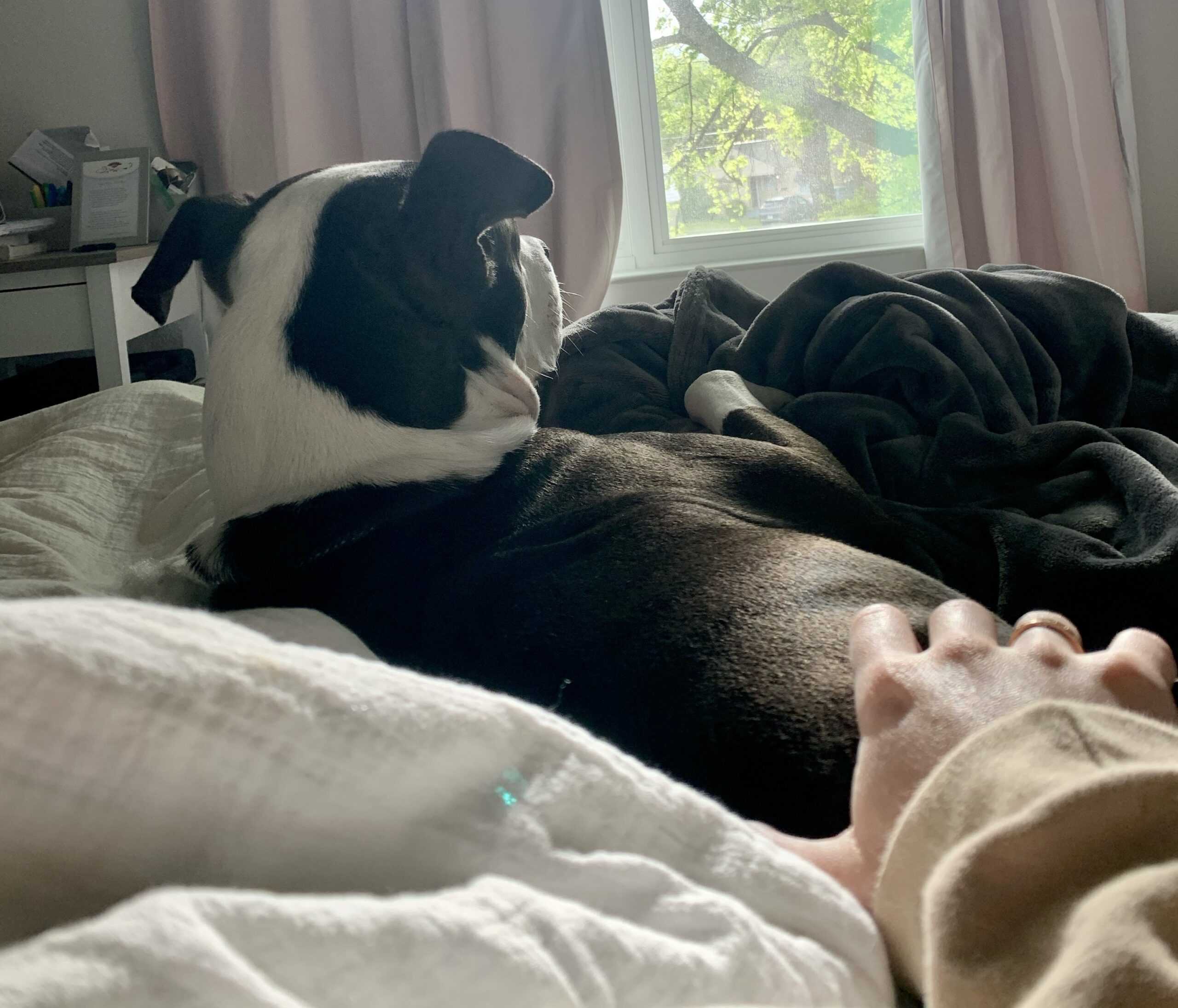
“If you are even considering fostering, try it out,” Welk said. “Even if it is just for the weekend, giving these animals care for a little bit is better than none.”
GAP takes care of all expenses including the food, kennel, and vet appointments.
For those living on campus or unable to foster, donations are another way the rescue looks for help.
Langer said donations recently helped a dog abused by its owner to undergo emergency surgery.
Langer and Taylor created an Amazon wish list for those that wish to donate tangible items. The wish list includes items such as bones, flea and tick treatment and kennels.
“TCU students have made a tremendous difference. We exhausted our area and were struggling to find new fosters, but TCU is a whole new community,” said Vela.

